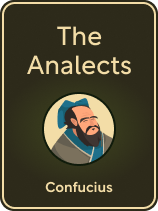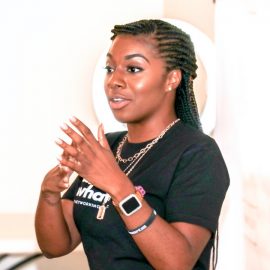

This article is an excerpt from the Shortform book guide to "The Analects" by Confucius. Shortform has the world's best summaries and analyses of books you should be reading.
Like this article? Sign up for a free trial here.
Do you see everything as a learning opportunity? Are you eager to figure out things for yourself?
According to Confucius, learning throughout life is vital. Whether it’s picking up new ideas and skills or gaining insights from other people, you should keep your eyes and your mind open to what you can learn and how you can grow.
Read more to learn what Confucius had to say about learning in The Analects.
Confucius on Learning
According to Confucius, learning new things is important, even as you respect traditional beliefs and practices. The Analects contains several passages in which Confucius says there’s sometimes good reason to deviate from tradition because of new knowledge. We’ll begin by covering his insights on how to learn new ideas, and then we’ll explore his advice on learning from others.
Observe and Keep an Open Mind
According to Confucius, the best way to learn is to always be receptive to new information. In other words, no matter what you’re doing, pay close attention and look for things to learn. For example, instead of robotically doing your job in the same way every day, listen to your coworkers talking—they might say something you didn’t know about your job or mention a trick you could implement to improve your workflow.
However, Confucius cautions against studying everything you encounter. Instead, look specifically for knowledge that will benefit you. For example, there’s no reason for a diplomat to spend time learning plumbing skills when he could be studying a foreign culture or learning a new language—knowledge that could help him perform his duties more effectively.
(Shortform note: Confucius’s lessons are ultimately goal-oriented—he recommends learning things clearly relevant to your current role that you can use to benefit society. In The Beginning of Infinity, David Deutsch argues differently: Deutsch believes that all knowledge is important, and you never know what seemingly irrelevant piece of information could inspire a new insight. For example, legend has it that Sir Isaac Newton developed his entire theory of gravity starting with the simple observation that things fall downward. He then discovered that the same force causing objects to fall to the ground also keeps the planets in orbit—a phenomenon previously thought to be unrelated to gravity on Earth.)
| Learn by Asking Yourself Questions Author and brain coach Jim Kwik (Limitless) argues that what you notice, and therefore what you learn, can depend on the questions you ask yourself. Learning about the impact of these questions may make it easier to follow Confucius’s advice to take in the new information that’s often around you. According to Kwik, your brain is an extremely powerful filter. Your senses take in far more information than your conscious mind can process, but most of that information gets filtered out by your subconscious, so you never notice it at all. For example, on a daily basis, you may not notice the variety of plant species and wildlife around you. However, questions can prevent you from filtering out interesting details. If you approach each day with a question like, “What amazing things are already around me?” you’ll be more likely to spot awe-inspiring details around you—like the abundance of nature in your neighborhood. A question like this that you ask yourself repeatedly, constantly looking for new information to help you answer it, is what Kwik calls a dominant question. You likely have at least one dominant question already, though you may not be aware of it. For instance, you might be in the habit of constantly wondering, “How can I make those around me like me?” The good news is that you can consciously choose a new dominant question for yourself; following Confucius’s advice, your new question might be something like, “What’s something new I can learn from this task?” |
Confucius’s Teaching Style
Confucius wanted people to observe, learn, and discover their own solutions to problems. Therefore, in his role as a teacher, he rarely gave his students the answers to their questions. He would instead provide a hint and insist that they figure out the rest themselves. He’d urge them to consider every question, even simple ones, from all possible angles. Using this method, Confucius didn’t teach people what to think, but rather how to think.
(Shortform note: The methods Confucius describes here are commonly known as active learning—when students think about what they’re learning through questioning and other methods instead of just memorizing answers and repeating them on command. Today, active learning is widely considered to be more effective (and more enjoyable) than rote memorization as it boosts student engagement and information retention. It also supports students’ true understanding of the subject matter.)
Learn From Others
In addition to observing your surroundings and thinking about your tasks, Confucius urges you to learn whatever you can from other people.
One way to do this, as we’ve said before, is through open-minded observation: When you’re with others, observe their good qualities (such as humility, honesty, or generosity) and try to emulate them. At the same time, look for bad qualities (such as pride, selfishness, or cruelty) and try to correct those faults in yourself.
However, don’t just learn from others through observation, welcome opportunities for them to actively teach you. Confucius recommends asking questions whenever possible and always welcoming the chance to be corrected. If someone proves you wrong about something, thank them for teaching you rather than getting upset that you made a mistake.
Confucius cautions you to make sure you’re learning from the right people. The people you spend time with will influence your thoughts and your behavior, so make sure you’re surrounding yourself with good influences.
First, he says, only befriend people who are kind and respectful; in other words, people whose behavior is worth emulating. Second, seek out people who share your artistic and cultural interests. When you have common interests with your friends, you can help each other to develop your understanding and appreciation of those things.
How to Find the Right People
Naturally, finding the right people to befriend means that you have to know how to evaluate people. As we discussed previously, you can evaluate people by closely observing their good and bad qualities. Now, however, Confucius specifically recommends judging people’s actions rather than their words. It’s easy for people to say the right things and pretend that they have strong moral character, but much more difficult for them to actually do the right things.
You can gain additional insight into people’s characters, and whether they share your artistic and cultural interests, by observing where they feel most at home. For example, someone who’s most comfortable in a crowded bar is a very different kind of person from someone who’s happiest in a quiet library. Make sure that you and your friends are happy to spend time in the same places; that’s a good sign that your interests and personalities are compatible.

———End of Preview———
Like what you just read? Read the rest of the world's best book summary and analysis of Confucius's "The Analects" at Shortform.
Here's what you'll find in our full The Analects summary:
- A collection of Confucius's teachings compiled by his students
- Lessons about how to be a good learner, person, and leader
- Concrete methods for putting Confucius’s teachings into practice






